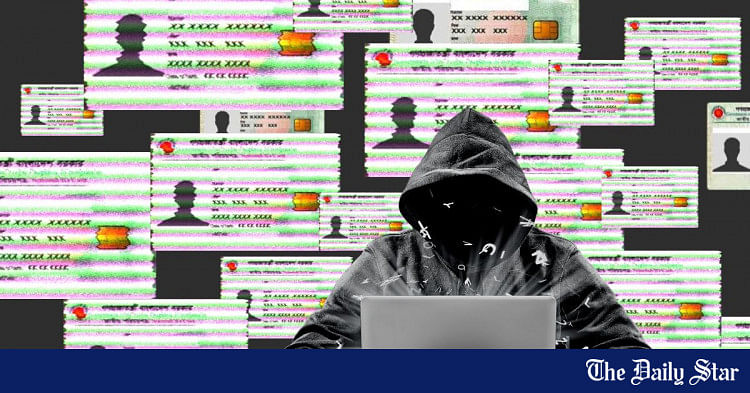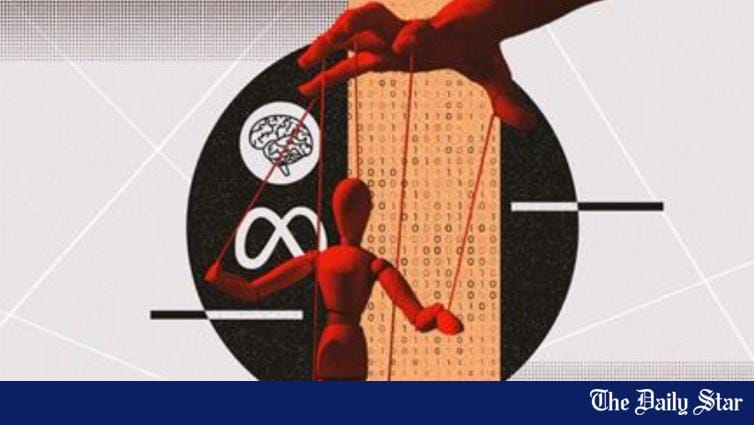Saif
Senior Member
- Joined
- Jan 24, 2024
- Messages
- 17,219
- Likes
- 8,260
- Nation

- Residence

- Axis Group


Trade digitalisation is the way forward
At a recently organised roundtable by the International Chamber of Commerce (ICC) Bangladesh, titled 'Digitalising International Trade in Bangladesh' speakers came up with arguments why Bangladesh should be moving towards digitising its trade operations to seriously boost exports. The event brought
Trade digitalisation is the way forward
SYED MANSUR HASHIM
Published :
Jul 09, 2024 21:37
Updated :
Jul 09, 2024 21:37

At a recently organised roundtable by the International Chamber of Commerce (ICC) Bangladesh, titled 'Digitalising International Trade in Bangladesh' speakers came up with arguments why Bangladesh should be moving towards digitising its trade operations to seriously boost exports. The event brought together policymakers, business leaders, UN representatives and experts who agreed that eliminating the various (and tedious) process of paperwork could dramatically help expedite trade.
A significant portion of outbound trade is based on shipping. Roughly, 40 per cent of the containerised trade is still based on 'bill of lading' process that is a cause of much delay. According to a UN expert, "Bangladesh could earn $0.6 billion more annually, as the electronic bills of lading could unlock $30-40 billion in global trade volume if these processes went digital."
From what has been shared in the event, it is understood that digitising laborious manual processes can help reduce trade costs significantly, to the tune of 11-23 per cent and also help increase exports by around $600 million per annum.
Digitalisation has been a major stated policy thrust of the present government over the last few terms. However, there has been and continue to be push-back by various agencies which fear a loss of control and the streamlining of these processes (through adoption of new technology) would possibly impede the illicit earning of certain quarters. There is no nice way of saying this, but that is a fact of life in our country, especially given the spate of high-profile graft cases that have been made public over the last few months. But then, it also everything to do with ushering in greater trade efficiency and sustainability. The business community has for years been clamouring for change that not only would help ease up on the cost of doing business in this country, but help expedite lead times leading to more trade.
As pointed out by ICCB president, the Digital Standards Initiative (DSI), which is a part of a global effort in Singapore that is supported by trade and financial entities, including the Asian Development Bank (ADB) and the World Trade Organisation (WTO), remains a prime example of a system that works for the betterment of trade. According to Mr. Rahman, the introduction of bills of lading result in swift transactions, cost efficiency and reduce risks of fraud. Indeed, the advantages of using electronic form of bill of lading has been supported by internationally recognised studies and it is time for Bangladesh to enter into this regime.
As stated before, digitalisation of services remains a top policy priority. Since cost of doing business in the country has not fared well in various international indices, it is high time the government started taking serious steps towards a cashless and digital system. Naturally these call for serious reforms. However, before leaping on to the slated 'digital bandwagon', a host of issues need to be addressed, particularly, cybersecurity. Despite serious efforts to develop ICT resources in-country, the issue of cybersecurity remains a soft underbelly in the country. State entities including those storing sensitive repositories of data have seen their fair share of hacking and security breaches. These are loopholes in the system that need to be plugged.
The first step has been taken and now the hard task begins. Enacting laws, amending rules, addressing reforms highlighted in the national logistics policy, etc. all have to be taken into cognizance and these processes need to be expedited. The good thing is that international bilateral agencies and foreign governments are willing to work with their counterparts in Bangladesh - at the business and state level. One can only hope that the momentum for change is sustained because the country needs to move beyond recent debacles and boost trade as a matter of national priority.
SYED MANSUR HASHIM
Published :
Jul 09, 2024 21:37
Updated :
Jul 09, 2024 21:37
At a recently organised roundtable by the International Chamber of Commerce (ICC) Bangladesh, titled 'Digitalising International Trade in Bangladesh' speakers came up with arguments why Bangladesh should be moving towards digitising its trade operations to seriously boost exports. The event brought together policymakers, business leaders, UN representatives and experts who agreed that eliminating the various (and tedious) process of paperwork could dramatically help expedite trade.
A significant portion of outbound trade is based on shipping. Roughly, 40 per cent of the containerised trade is still based on 'bill of lading' process that is a cause of much delay. According to a UN expert, "Bangladesh could earn $0.6 billion more annually, as the electronic bills of lading could unlock $30-40 billion in global trade volume if these processes went digital."
From what has been shared in the event, it is understood that digitising laborious manual processes can help reduce trade costs significantly, to the tune of 11-23 per cent and also help increase exports by around $600 million per annum.
Digitalisation has been a major stated policy thrust of the present government over the last few terms. However, there has been and continue to be push-back by various agencies which fear a loss of control and the streamlining of these processes (through adoption of new technology) would possibly impede the illicit earning of certain quarters. There is no nice way of saying this, but that is a fact of life in our country, especially given the spate of high-profile graft cases that have been made public over the last few months. But then, it also everything to do with ushering in greater trade efficiency and sustainability. The business community has for years been clamouring for change that not only would help ease up on the cost of doing business in this country, but help expedite lead times leading to more trade.
As pointed out by ICCB president, the Digital Standards Initiative (DSI), which is a part of a global effort in Singapore that is supported by trade and financial entities, including the Asian Development Bank (ADB) and the World Trade Organisation (WTO), remains a prime example of a system that works for the betterment of trade. According to Mr. Rahman, the introduction of bills of lading result in swift transactions, cost efficiency and reduce risks of fraud. Indeed, the advantages of using electronic form of bill of lading has been supported by internationally recognised studies and it is time for Bangladesh to enter into this regime.
As stated before, digitalisation of services remains a top policy priority. Since cost of doing business in the country has not fared well in various international indices, it is high time the government started taking serious steps towards a cashless and digital system. Naturally these call for serious reforms. However, before leaping on to the slated 'digital bandwagon', a host of issues need to be addressed, particularly, cybersecurity. Despite serious efforts to develop ICT resources in-country, the issue of cybersecurity remains a soft underbelly in the country. State entities including those storing sensitive repositories of data have seen their fair share of hacking and security breaches. These are loopholes in the system that need to be plugged.
The first step has been taken and now the hard task begins. Enacting laws, amending rules, addressing reforms highlighted in the national logistics policy, etc. all have to be taken into cognizance and these processes need to be expedited. The good thing is that international bilateral agencies and foreign governments are willing to work with their counterparts in Bangladesh - at the business and state level. One can only hope that the momentum for change is sustained because the country needs to move beyond recent debacles and boost trade as a matter of national priority.









































